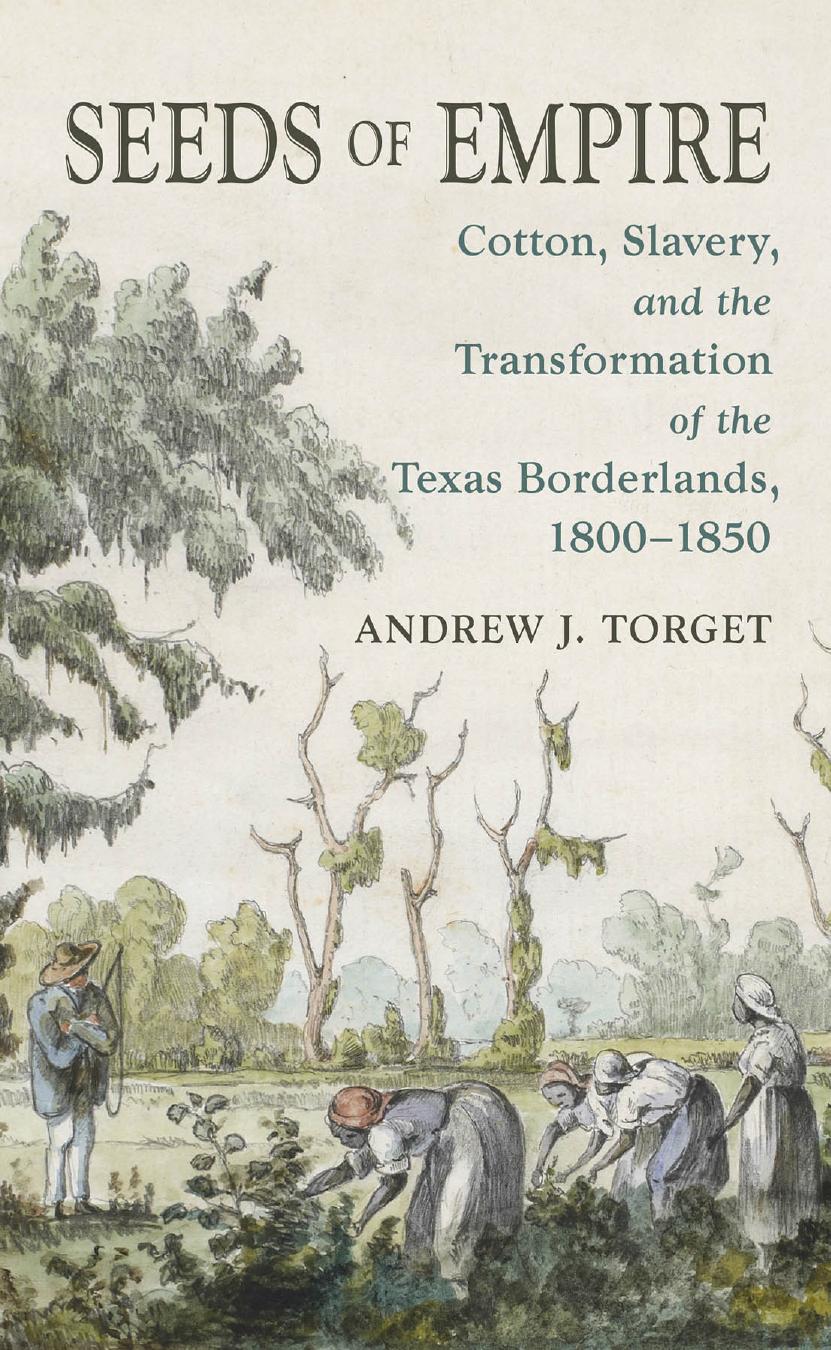Seeds of Empire: Cotton, Slavery, and the Transformation of the Texas Borderlands, 1800-1850 by Andrew J. Torget

Author:Andrew J. Torget [Torget, Andrew J.]
Language: eng
Format: epub, pdf
Tags: history, United States, State & Local, Southwest (AZ; NM; OK; TX), Latin America, Mexico, Social Science, Slavery
ISBN: 9781469624259
Google: pVu0CAAAQBAJ
Publisher: UNC Press Books
Published: 2015-08-06T23:54:41.175262+00:00
Barnyard Republic
As the Houston administration suffered repeated setbacks in foreign relations, the governmentâs efforts within the Republic fared little better. Although Texan representatives in Washington, D.C., and London boasted about the effectiveness of the new Texan state, the truth was that Sam Houstonâs government barely functioned. Having secured nothing more than recognition from the United States, Texans found themselves attempting to build an effective state with almost no resources. Indeed, the failure of cotton diplomacy to overcome international objections to Texasâs emergence as a slaveholdersâ republic quickly brought painful consequences to the new nation.
What bedeviled the Republic of Texas most was the lack of revenue, without which there could be no government. When Texan agents failed to secure loans in either the United States or Great Britain, Houstonâs administration had no choice but to begin taxing imported goods. The cash required to pay such tariffs, however, was almost nonexistent among Texas citizens, and so the measureâs primary effect was to increase the appeal of smuggling along the U.S.-Texas border. And because the anemic Texas government could not afford the manpower needed to enforce tariff duties or slow smuggling along the border, the Republic then turned to levying taxes directly on its citizens. In June 1837 the Texas Congress decreed that every citizen would be required to pay a 1.5 percent tax on the value of certain personal property he or she owned, such as land, slaves, mules, and horses. Yet, again, the Texas government lacked the means to enforce such measures, and so during the first three years of the Republic at least a third of all property taxes simply went unpaid. Houstonâs administration finally resorted to issuing paper moneyââto avoid the absolute dissolution of the government,â Houston grumbledâand printed $500,000 in treasury notes in late 1837, followed by another $300,000 in 1838. Backed solely by the faith of the Texas government, the notes soon traded in New Orleans for only fifty cents to the U.S. dollar.48
The result was a government that existed largely on paper. Although the Texas Congress passed numerous laws aimed at instilling some measure of order on the fledgling nationâincluding an act prescribing the death penalty for at least fourteen crimes, including murder, arson, robbery, and stealing slavesâit was impossible to enforce such measures without more revenue.49 Key government posts could not be paid and administration officials went without salaries during the first year of the Republic.50 The Texas nation, in fact, could not even manage to run a functioning postal system, and mail service became so abysmal that many Texans hired private carriers to transport their correspondence safely to the United States.51 Perhaps most telling, however, was the dreadfully understaffed condition of the Republicâs General Land Office. The Land Office was charged with sorting through an avalanche of competing claims to tens of millions of acres granted under the Spanish, Mexican, and Republic of Texas governments, so the office could then validate and issue new land titles. The task was simply enormous. But so was
Download
Seeds of Empire: Cotton, Slavery, and the Transformation of the Texas Borderlands, 1800-1850 by Andrew J. Torget.pdf
This site does not store any files on its server. We only index and link to content provided by other sites. Please contact the content providers to delete copyright contents if any and email us, we'll remove relevant links or contents immediately.
Zero to IPO: Over $1 Trillion of Actionable Advice from the World's Most Successful Entrepreneurs by Frederic Kerrest(4526)
Machine Learning at Scale with H2O by Gregory Keys | David Whiting(4295)
Never by Ken Follett(3937)
Harry Potter and the Goblet Of Fire by J.K. Rowling(3848)
Ogilvy on Advertising by David Ogilvy(3607)
Shadow of Night by Deborah Harkness(3361)
The Man Who Died Twice by Richard Osman(3072)
Book of Life by Deborah Harkness(2932)
The Tipping Point by Malcolm Gladwell(2914)
Will by Will Smith(2911)
0041152001443424520 .pdf by Unknown(2843)
Purple Hibiscus by Chimamanda Ngozi Adichie(2827)
My Brilliant Friend by Elena Ferrante(2824)
How Proust Can Change Your Life by Alain De Botton(2807)
How to Pay Zero Taxes, 2018 by Jeff A. Schnepper(2646)
Hooked: A Dark, Contemporary Romance (Never After Series) by Emily McIntire(2550)
Rationality by Steven Pinker(2352)
Can't Hurt Me: Master Your Mind and Defy the Odds - Clean Edition by David Goggins(2324)
Borders by unknow(2304)
